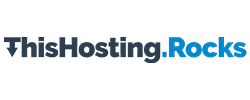A help desk is a team or department within an organization that provides real-time technical assistance to all of its software end-users and customers. It’s the first point of contact between your customers and business, most often when facing issues with your product or service offerings.
60% of consumers claim to stop doing business with brands due to poor customer service. This means that you need to have a careful approach towards your help desk solution, considering that it’s one of the most effective ways of increasing brand loyalty, customer retention, and providing a positive experience.
We’ll be diving deeper into this article to learn more about the help desk concept, some challenges it faces, and the strategies you can use to overcome these challenges.
The components of an effective help desk solution
Customer support platforms aren’t only about how much is the monthly subscription, but rather, about following a customer-first culture and making sure the workflows follow it. To ensure you are promoting this culture, here are the most important components of an effective help desk software:
- Personnel: It’s important to put yourself in the customer’s shoes, and show empathy, such as active listening, patience, and giving enough attention to detail. Additionally, it’s important that help desk agents know about products and services, since the ones who do know more about them are the reason that customers go through a good experience.
- Technology: Effective help desks need proper CX software that allow the agents to communicate with customers across different channels like in-app messaging, social media, live chat, and more.
- Procedures: You need processes and systems in place for handling daily routine tasks in your support experience.
When a helpdesk agent can’t resolve a customer’s issues, everything becomes problematic. Therefore, it’s important to have a set of solutions, which we’ll dive deeper into.
The most common types of help desk software
A help desk management software is all about providing real-time support and technical assistance to customers. While each software is different, the one you are using must be well-optimized.
Help desk software isn’t just a tool, but a bridge between brands, streamlining customer interactions, promoting quick-response times, and prioritizing interactions.
When conducting performance optimization, it’s also important to know which type of help desk software you are using. There are three main types of help desk software:
- Cloud-based help desk software: Cloud-based software offers a high range of flexibility for your software. You can log in from anywhere at any time you want. You don’t need to really have any technical knowledge to use this type of software.
- Open-source help desk software: This type of software offers a wide range of customizable options, but compared to cloud-based software, you can’t get away with basic technical knowledge. However, you do have a wide range of customizable options.
- On-premise help desk software: On-premise help desk software offers you a wide range of data control, making sure that no external forces get a hold of it. However, sometimes, you may undergo a few downtimes and prolonged update cycles.
After you choose your help desk software, it’s now time to enhance your customer support, keep track of interactions, ticket volumes, and gain more insights from customer feedback trends.
7 Ways to elevate your helpdesk hosting solution for better performance, control, and scalability
When you’re ready to choose your help desk software and build up your support team, it’s now time to give your customers the best experience possible. However, you need to follow a few practices to do so, and they include the following:
Cloud service providers (CSPs)
Cloud service providers are great hosting solutions you can use. Many companies will mix and match cloud hosting services for different requirements rather than only choosing one provider for all of their needs.
Here’s a comparison of the best and most affordable cloud hosting providers, all of which would be a great fit for hosting help desk software:
CSPs give customers the freedom to combine providers and services for best fitting their needs, making it possible to move workloads between cloud providers whenever needed.
Content Delivery Networks (CDNs)
CDNs are responsible for improving customer satisfaction by optimizing the performance of a cloud-based helpdesk system both on the web and on mobile devices. It’s geographically dispersed for allowing much faster web performance.
Each CDN server is located in the network edge, much closer to the users than the host server is. Many people sometimes refer to CDN servers as “edge servers.” Each of the CDN servers catches copies of HTML files, audios, videos, and more, from the host server in order to reduce the distance between the users and content. Overall, CDNs are responsible for improving web performance, reducing loading times, and controlling bandwidth consumption and costs.
This directly impacts helpdesk systems, since reduced loading times allow helpdesk agents to help customers much faster.
Virtual Private Servers (VPS)
You can find many providers that offer VPS hosting. It grants you more control over the server environment, and allows you to configure and install your helpdesk systems on your own VPS. This solution is used for self-hosted helpdesk systems.
Some popular providers include Linode and DigitalOcean. Linode offers users a flat-fee backup service that automatically backups your VPS every day, or week, based on what you need. The VPS it offers can provide 2000 Mbps outbound connectivity from the data center and 40000 Mbps inbound connectivity.
On the other hand, we have DigitalOcean, which actually has a tutorial on their website that you can check out of how you can integrate your help desk system with its Open Source Ticket Request system (OTRS). Through that, you get access to a single point of contact for IT personnels, customers, IT services, users, and even external organizations.
For hosting recommendations, you might prefer a managed solution – where the hosting provider manages the VPS for you. They will install the help desk software for you too. Here’s a comparison of the best and most affordable managed VPS hosting providers that would be a great fit for hosting help desk software:
| Host | Coupon/Discount | Price Per Month (with discount) | RAM | Storage | Bandwidth | 24/7 Support | Management Level | cPanel/WHM Included | Full Root Access |
|---|---|---|---|---|---|---|---|---|---|
| KnownHost | 30% lifetime | $35 | 2GB | 50GB SSD | 2000GB | Yes | Fully Managed | Yes | Yes |
| DreamHost | 1 Month Free if Paid Yearly | $15 | 1GB | 30GB SSD | Unlimited | Yes | Fully Managed | No | No |
| SolaDrive | 25% lifetime | $19 | 1GB | 25GB SSD | 1000GB | Yes | Fully Managed | No | Yes |
| Cloudways | 10% off for 3 months or $30 Free Credits | $9 | 1GB | 25GB SSD | 1000GB | Yes | Fully Managed | No | No |
| HawkHost | 30% lifetime | $14 | 1GB | 30GB SSD | 1500GB | Yes | Semi Managed | No | Yes |
| tmzVPS | 30% one time | $21 | 4GB | 40GB SSD | 6000GB | Yes | Fully Managed | Yes | Yes |
| Scala Hosting | 20% one time | $10 | 2GB | 20GB SSD | 3000GB | Yes | Fully Managed | No | No |
On-Premises hosting
We mentioned before that you have helpdesk software that offers on-premises hosting. This type of hosting grants you the highest level of control, but requires you to have a higher level of technical knowledge to manage hardware, security, and maintenance.
On-premise help desk software can be deployed and installed on host servers. It collects, organizes, and manages customer and internal requirements. It can help users communicate across different channels into one single place, take care of customer support-related problems, and track user requests in ticket form. 010
Shared Web hosting
If you’re concerned about managing your servers with a user-friendly interface, web-hosting is the best option to go with. They are great at simplifying administrative tasks. Web Hosting platforms are known for their reliable high-performance services entirely dedicated to customer support and services.
For a recommendation, you can check out InterServer, A2 Hosting, or iWebFusion. – all are great options for shared hosting for help desk software.
Moreover, the tool allows you to access many tutorials, how-to guides, and educational articles that can help you troubleshoot issues on your own.
Database hosting
The type of database hosting solution you choose will depend on what kind of database management system you are using (PostgreSQL, MySQL, etc.). Many people will keep it simple and go for Amazon RDS, or use Microsoft’s Azure database management system.
Amazon RDS is an excellent database hosting solution you can use since of its high availability rate with multi-AZ deployments, the choice of engines you get to choose from, and how easy it’s to manage.
On the other hand, you have the Microsoft Azure database management system. Azure has built-in security controls, broad regional coverage, and compliance offerings that help support your business growth. Azure’s managed database services include:
- Azure SQL
- Azure Cosmos DB
- Azure Database for postgreSQL
- Azure Database from MySQL
- Azure Database for MariaDB
- Azure Cache for Redis
- Azure Managed Instance for Apache Cassandra
Your database service choice will all depend on what you need and are looking for.
Document Service Level Agreements (SLAs)
SLAs define both internal and external service qualities of a business. They are used for tracking performance against business objectives and measuring service success based on the expectations set.
Since many businesses are stuck with raw data, it might make it challenging for them to track SLAs. Robust help desk management software can use tools to find the required metrics and identify how fast it takes to fix an issue.
Choose your host service provider carefully
You need to act carefully when it comes to choosing the right service provider. Check all the features and offerings based on the costs the software is offering. Also, it’s important to check if the help desk software is offering enough scalability to give you enough support to comply with customer needs.
Help desk management tools are there for improving workflows, streamlining operations, improving business operations and fulfilling customer needs. It’s important to choose the software that fits with your business goals and make sure that it has all the features and integrations you need.
About the author
This article was submitted to us by a third-party writer. The views and opinions expressed in this article are those of the author and do not reflect the views and opinions of ThisHosting.Rocks. If you want to write for ThisHosting.Rocks, go here.

